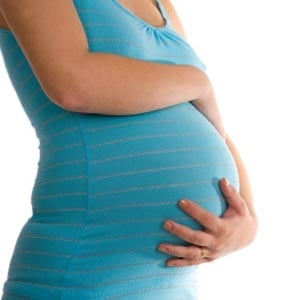
Investigators took pains to stress that it is not weight gain itself that is being tagged as a cause of autism. Nor do the current findings reflect in any way on how pre-pregnancy weight might affect the future offspring of mothers-to-be.
Instead, the study team believes that a small rise in weight occurring while pregnant might be an indication that some broad and complex process perhaps involving hormone and inflammation irregularities is underway, of which weight gain is a reflection.
If so, then weight gain during pregnancy might serve as an easily recognisable marker for a constellation of events that collectively increase the risk for autism.
Read: Diet tips for pregnant moms
"Although weight gain during pregnancy was associated with autism risk, the modest difference in weight gain found suggests that weight gain serves as a marker rather than a cause for autism," said study lead author Dr Deborah Bilder, a paediatrician and assistant professor in the department of psychiatry at the University of Utah, in Salt Lake City.
"As a marker, it would share an underlying cause with autism, such as hormone imbalance or inflammation," Bilder added.
The study was published online and in the print issue of the journal Paediatrics.
The authors said that, unlike in the past, autism is no longer deemed to be a rare disorder, with estimates suggesting that some form of autism affects about one in 88 children in the United States.
Read: Essential nutrients for pregnancy
Autism spectrum disorders are neurodevelopmental disabilities that can range from mild to more severe. Children with autism display social problems, communication difficulties, and restricted and repetitive patterns of behaviour.
Maternal weight-gain patterns
For their study, the team focused on two groups of children with autism in Utah.
The first group included 128 children, while the second included 288 children. Maternal weight-gain patterns during pregnancy were analysed in both groups.
The first group's results were stacked up against those of nearly 11 000 mothers of healthy children of a similar age and gender. The second group's results were compared against maternal weight gains leading up to the birth of each autistic child's healthy siblings.
Small increases in weight in 2.2 kg (5 pounds) increments while pregnant were linked to a slightly higher but significant risk for autism among the offspring. By contrast, body-mass index at the start of pregnancy was not associated with a higher risk for autism.
There was an average difference of only about 1.3 kg (3 pounds) in weight gain when comparing mothers of children with and without autism, the study found.
Bilder reiterated that when it comes to autism risk, weight gain during pregnancy should not be seen as the culprit but rather the canary in the coal mine. She cautioned against any dietary changes based on the findings.
Read: Pre-eclampsia during pregnancy may cause autism in babies
"Good nutrition is essential to a healthy pregnancy," Bilder said. "Clear guidelines are in place that pregnant women can discuss with their medical providers regarding the recommended weight gain for a healthy pregnancy. This study was not designed to impact these guidelines, but rather to provide future direction to researchers as we investigate possible causes that link risk factors with autism."
On that score, Dr Andrew Adesman, chief of developmental and behavioural paediatrics at Cohen Children's Medical Centre of New York, in New Hyde Park, said that, unlike previous research, the current investigation shines light on the risk associated with weight gain during pregnancy, rather than before pregnancy.
"The fact that there is a modestly increased risk of autism in pregnancies associated with extra weight gain provides pregnant women with one more reason to be mindful of their weight gain during pregnancy," he said.
"Although it is unclear why there is an increased incidence of autism born to mothers who gained more weight during their pregnancy, hopefully this study will provide yet another clue to aid researchers in their quest to better understand what causes autism," Adesman said.
Read more:
Drinking at conception ups baby's diabetes risk
Mom's diabetes control in pregnancy may affect kids' brains
Eating for two - don't over do it!
Image: iStock




 Publications
Publications
 Partners
Partners










